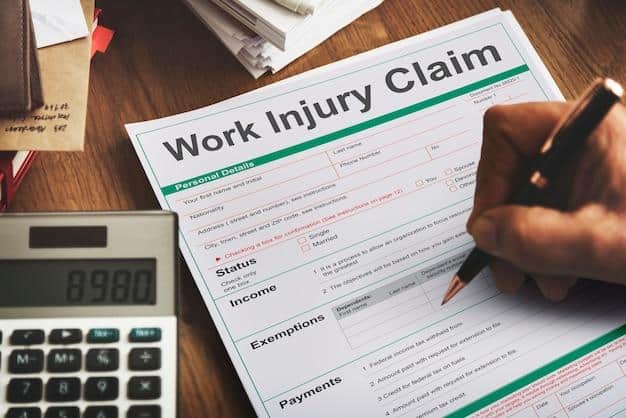
Florida’s economy thrives on industries like tourism, construction, healthcare, and agriculture—jobs that often involve physical risk. With such a diverse and active workforce, workplace injuries are more common than many realize. Florida workers’ compensation is a type of insurance that your employer is legally required to carry. It’s designed to pay for your medical treatment and replace part of your wages if you get hurt or sick because of your job.
That means whether you fell off a ladder, strained your back lifting something heavy, or developed an illness because of something at your workplace, this system is in place to help. However, you need to act quickly and follow certain steps if you want to claim those benefits successfully.
Now, unlike personal injury cases where proving fault is necessary, Florida uses a no-fault system for workplace injuries. What that means is you don’t need to prove your employer caused the injury to access the Florida workers’ compensation benefits, only that it happened while you were doing your job.
What to Do Immediately After a Work-Related Injury
The first and most important step after getting injured is reporting it. Florida law requires that you tell your employer about the injury within 30 days. If you wait longer than that, you may lose your right to benefits entirely, even if your injury is serious or obvious.
After reporting the injury, your employer should send you to a doctor from their approved list. You can’t just go to your own doctor unless it’s an emergency; the treatment has to come from someone the insurance company recognizes, or they might not pay for it.
Once you’ve seen the doctor, your employer is supposed to file the claim with their insurance company. If they don’t, you can file directly with the Florida Division of Workers’ Compensation. The faster this step is done, the sooner your benefits can begin.
From this point on, you must follow the doctor’s orders closely. That includes attending all appointments, taking medications as prescribed, and doing any recommended therapy. If you miss appointments or stop treatment, your claim could be denied or reduced.
What Kind of Benefits Can You Get?
Florida’s workers’ compensation system offers several kinds of benefits, depending on how badly you’re hurt and how long it takes to recover.
Medical Benefits
These cover your doctor visits, medications, surgery if needed, physical therapy, and even transportation to your appointments. You don’t pay out-of-pocket as long as you use an approved provider and your care is related to the work injury.
Wage Replacement
If your doctor says you can’t work at all, you’ll get what’s called Temporary Total Disability (TTD) benefits. These are usually two-thirds of your regular weekly wage, up to a state-set maximum.
If you can still work but not in the same way as before, you might get Temporary Partial Disability (TPD), which pays a percentage of the difference between what you used to earn and what you can now earn.
Permanent Disability
If your injury causes long-term damage, you might qualify for permanent benefits. This includes Impairment Benefits, which are calculated based on how much function you’ve lost and whether you can return to work at all.
Vocational Rehabilitation
If you can’t return to your old job due to your injury, you might be eligible for training in a new skill or even help with job placement.
Who’s Covered by Workers’ Comp in Florida?
Most workers in Florida are covered, whether they’re full-time, part-time, seasonal, or temporary. However, there are exceptions. Independent contractors, domestic workers (like housekeepers in private homes), and some farm workers might not be covered.
Coverage also depends on how the injury happened. If it occurred while you were doing something unrelated to your job, it may not qualify. Injuries from being intoxicated, using illegal drugs, or fighting at work can also make you ineligible.
How to File Your Claim
Here’s the process again, broken down in simple terms:
- Report the injury to your employer within 30 days.
- See an authorized doctor listed by your employer or their insurance company.
- Follow the treatment plan exactly as the doctor advises.
- File a formal claim if your employer doesn’t report it for you.
- Track all documents like injury reports, doctor visits, and correspondence from the insurer.
Conclusion
Florida’s workers’ compensation system exists to protect you, but it only works if you know how to use it. That means acting quickly, following the rules closely, and standing up for your rights if you’re denied or underpaid.
No matter what kind of work you do in Florida, from agriculture to office jobs to construction, knowing how to handle a work injury can protect your health, your income, and your future.







